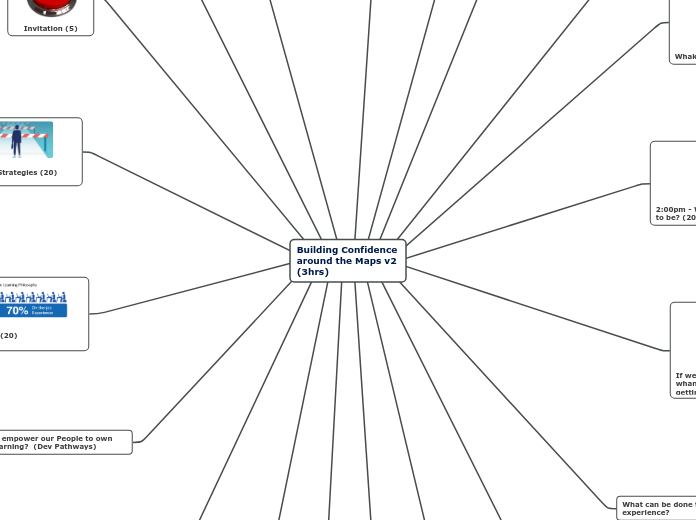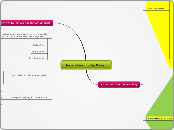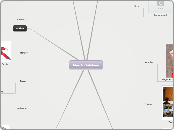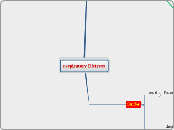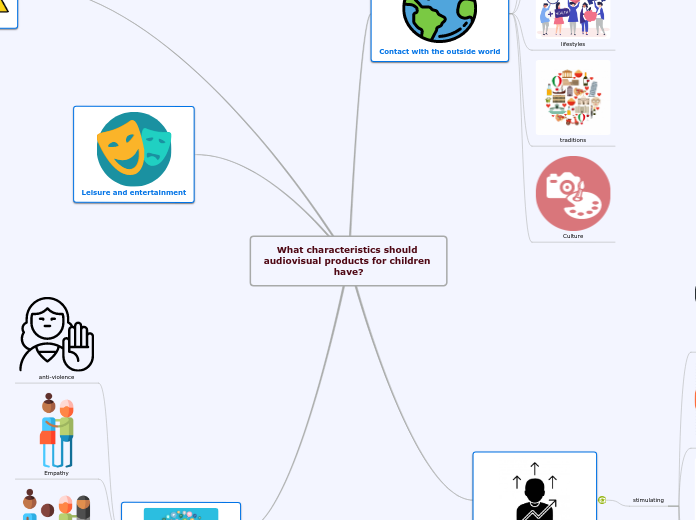Purpose
RD Role
What is it you think we're trying to do as a roopu?
What's it about for you
Opening Korero
Presence throughout
Gain their commitment to action (get in the mahi)
Build confidence in maps/practice
Building Confidence around the Maps v2 (3hrs)
Prework Question: So who is for the development of our people? For client experience? For the client experience
Kia ora koutou,
We are looking forward to spending time with you at our workshops planned over May 17-18. The purpose of this hui is to revisit the development maps which we introduced to you in 2022 which is a blueprint and tool to help us strengthen our practice when it comes to working with whānau, as well as the Learning Pathways which is something new that will enable the Development Maps.
For some of you this might be your first time hearing about the development maps for others you may still have questions about what the maps mean for you as a leader and how you can build it into your own practice when working with your people. Either way, this forum will give you a chance to ask questions and deepen your understanding of the maps and the pathways.
Please familiarise yourself with the following prior to the workshop and PRINT your own copy of the Maps to bring to the session:
- Development Maps (See attached)
- Learning Pathways (Click on link….) Learning Pathways – Service Delivery – Confluence
There is also one question we would like you to reflect on and come prepared to discuss at the workshop:
-
- “who is responsible for developing the capability of our frontline staff?”
Thanks in advance for prioritising this session.
We are looking forward to our time together.
Mauri ora!
Aaron, Dianna, Theresa (Learning & Continuous Improvement)
**Print copies of MSCD/MSCO job descriptions
MCSO
· Provide staff with clear leadership and direction which supports MSD’s strategic direction and Service Delivery and Regions’ business plan.
· Think, plan, and act to engage the Service Centre team in MSD’s purpose and position the team to meet demand for services and achieving sustainable outcomes for clients.
· Connect with managers and staff to build trust and confidence in the organisation and be a leader that people want to work for.
· Establish clear accountabilities and expectations of behaviour and performance within the team.
· Develop and implement capability skills assessments and analyse gaps within the team and create opportunities to increase the value the team can add to MSD outcomes, through innovative local initiatives.
· Coach and develop the team to build the people capability to support innovation, and deliver high quality service and sustainable outcomes for clients and communities and to support their Te ara piki goals.
· Lead all people management activities for your team including recruitment, induction, and management of performance issues.
· · Your inclusive leadership style will promote diversity and inclusion, using diverse perspectives to enhance decision making and lead a people centred culture.
· Model and lead by example the MSD values and our people centric culture. Your team will incorporate the values in their everyday ways of working, understanding that how they do things and how they behave is just as important as what they deliver.
How are you doing all of this?
Key point; We are all responsible, but you have the primary responsibility
The Golden Triangle
Trainer/CD
Leader
Learner
The Development Cycle
Discuss/Reflect
Development Cycle
But is it just a capability question?
Pre work question: who is responsible for developing the capability of our frontline staff?”
Who is responsible for creating the right experience?
First we must take ownership and responsibility for the experience
Who is responsible?
Improving our practice: How can I build a practice of being in the mahi. And ensure I come from a place of knowing? (45)
What is your current practice?
Why do I need to be in the mahi?
CDs job
How do you see this fitting with your role?
Leading through others
What separates a leader from a manager?
How do your leaders see this fitting into your Role?
RD
Expectation already
MSD
Success Profile
Job Description says
Role, Responsbility
SD Leadeship
Graham Basics/Practice
What is my part as a Leader?
How do I go about this?
Improving our practice: How can I apply the Maps as a leader?
What's the best way to know what's really going on?
Improving our practice: Coming from a place of knowing (30)
Concerns
What challenges could I encounter when leaning in?
How might I get in my own way?
Do I have to be a knowledge expert?
Approach
Do you need to hear the client?
Of course
How far would you sit?
How would you go about preparing the learner before the call?
How might you set up an observations for success?
What's a good question you could ask to get the learner reflecting on how they went?
What else could you ask
What opportunities did you notice for the learner?
Did we help them in the way they needed?
What was important to the client
Refer to your notes
Listen to another call
This time: What opportunities did you notice for the learner?
Cultural awareness
Empathy
Decision making
Refer Maps
Did we help them the way the need to be helped?
What was important to the client?
Take notes (Verbatim recommended)
Lean in and listen
Go and see for yourself
How do we know what they're kids are up to?
What are they really up to?
How can we empower our People to own their own learning? (Dev Pathways)
L&CI (20)
WIIFM
#3 Benefits of focusing on practice
For MSD
For our clients
For my people
For me
Truly understand the health of your practice
How can you improve a practice you don't understand?
Get it right for client and the rest takes care of itself
How can doing this help you achieve your performance results?
Get in the mahi (Benefits)
Why being in the mahi is better than ARP
You can have real confidence
Don't wait for a report
Get along side
By going to see for yourself
Sample size vs Confidence
Why being in the mahi is better than Checking
Reflects only what the system can capture
Exam - get answer wrong but get points for your showing your thinking
No visibility of thought process, decision making, no context
Retrospective
Learning moment has passed
A fraction of the interaction
vs the entire end to end
Reliant on the notes captured
Not full picture
Creates a culture of fear
Only talk to them when they've made a mistake
Punitive
vs a culture of learning
70% On the Job
CDs are now coaches not trainers
Why coaching is better than Training
Learning to ride a bike
How we work?
Capability build / Set Direction
New CDs / Change Journey
New Structure
Whakapapa
Who is responsible for the capability build of our staff?
TMC/MC
- The village (You are, learner-led, other support)
- Primary, secondary, tertiary
- You have the primary relationship (e.g. parents vs. school teacher, coaches, scout master, tutor, priest)
**You cannot outsource this responsibility
CDs cannot replace you
CDs don't have mana to really confront you with hard honest conversations (at age 87 my mum is still telling me the home truths because she can) - the uncle or cousin can only do so much.
Overall capability of your staff sits with you
Their practice sits with you
Cannot outsource this responsibility
Authority & Ownership
Sits squarely with you
Staff are not accountable to CDs
CDs cannot replace you
CDs support you
Takes a Village
Who has ultimate accountability for their success?
You do
Someone holds the primary relationship?
Who?
We all have a role to play
Tutor
Counsellor
Scout master
Coach
Teacher
Parents
e.g. Our kids
Golden Triangle
Barriers & Strategies (20)
What changes do you need to make in your leadership practice ?
What help do you need?
How can you overcome those barriers?
What's getting in your way?
It's all coaching
Too many things
Development maps
Performance coaching
Te Ara Piki
Too busy
How are you current staff relationships?
Would they trust you?
What can you do to influence/create a learning organisation?
Invitation (5)
Set a date to share/unpack learnings
Slides
Make it safe
Set it up
Set a goal
Get in the mahi
Creating a new habit
No more than 1 per day
Story (10)
This is the pearl
They are why we exist
As a leader you are in a privilged position
Create a different culture & way of working
To role model
To influence
Where much is given
Opportunity to lift mana
Help whanau get on or stay on their feet
Staff at the cross roads in peoples lives
ROBBIE'S STORY
Safe, strong he is becoming independent
Be betting more than us
New Job Ops Manager
The impact of our mahi on clients
PARABLE OF THE PEARL AND THE BOX
WHAT IS THE BOX?
WHAT IS THE PEARL?
Bring it back to client
RD Closing Remarks (6)
Recap Maps (20)
Refer back to 'Live calls"
How can these help us improve practice
What is it NOT?
Too much too fast won't last
Use it to do good, not harm
It's a gift
It's not a bat
Don't focus too much on Label
Experience before the label
Prince
e.g. Role play
Don't make it a thing
Learning Pathways
Don't wait
8 Areas to our craft
What does good service look like?
How we want our staff working with whanau?
A way to explore the skill areas I need to be good at my craft
Give us a starting point
+ 4 Self reflection areas
Short & Sharp
Client Value Steps (10)
CVS Helps us work to client purpose
In a way that works for them, not us
Reminder working with human beings
Keep them at the centre
3 things
What steps in our process added true value to whānau interactions
Chance to hear in their words
INDIAN TALKING STICK
WHAT MATTERS TO THEM?
HOW WE HEAR
55% NON-VERBAL
38% TONE, VOICE
7% WORDS
how they wanted to experience us
Shows - how we have typically thought about our mahi
Clients come client shaped
Product or Process / People
Whakapapa to the maps - 2018
Told us what matters to whanau
What's our clients purpose?
What's MSD purpose?
Understanding our mahi from whānau perspective
Outside / in
What can we do to improve it?
We have developed something that defines this - can help you
Dev Maps
What skills and competencies are you looking for?
What do you use as your guide?
What is your benchmark/standard
10ft tall Bball standard
When you are in the mahi, seeing first hand where your staff are at? What can you do or say?
How do you know what good looks like?
What can be done to improve the client experience?
If you wanted to improve the service being provided by your staff where would you begin?
What is YOUR practice as a leader?
That's the only way you can know
You must spend time "in the mahi"
How many 1:1 interviews do you hold with your staff on a regular basis?
How many client interactions do you listen to on a daily basis?
What kind of client experience is your site creating?
How do you know?
Great vs. poor
Continuum
If we care so much about whanau, then how are we getting it so wrong?
From client perspective?
Hear some "live calls"
What would they say our practice is?
NPS score (-23)
We need to work on the experience.
Problem: So if we're all big on helping whanau, how come we're getting it so wrong?
Was this the kind of experience you would want your mother to have?
Did they get the help they needed?
What was important to them?
From your perspective?
Would you recommend our service to your best friend?
What's been your experience?
Lot's of big why's
How would you characterize our practice?
Want, safe, strong, independent
So how are we doing do you think?
2:00pm - What kind of leader do you aspire to be? (20min)
Wellness
Oxygen Mask Principle
How do leaders look after themselves?
Video: Simon Sineck
Why good leaders make you feel safe | Simon Sinek - YouTube
Debrief
What is YOUR cause? Practice?
What kind of leader do you want to be?
What is it about your practice that makes you a great leader?
What is a common theme
Their cause
Their responsibility
Their leadership in relation to people
How come no one put up Admin?
Reacting
Putting out fires
Escalations
What do you notice?
Activity: What makes a great leader?
Capture on whiteboard
Discuss: something about their practice that makes them a great leader
Choose any
Whakawhanaungatanga/What's your why
Agree this with Kiriwai:
- Purpose of session
- 4 Months into the financial year
- What have we done to strengthen our practice
- chance to clarify expectations
- Role model importance
- Hear ideas/challenges
- Wero laid down by our SD Leaders - Graham FY23 A3 - do the basics well
- Build confidence to get in the mahi with our people
- Invited Aaron & Rangi back to deepen our understanding of the Development maps
- Focus on 'us' as leaders - what is our part in this?
Who is responsible for capability of our people?
- review the job descriptions (RD)/Success Profile
- My expectation for today
TMC/MC
- The village (You are, learner-led, other support)
- Primary, secondary, tertiary
- You have the primary relationship (e.g. parents vs. school teacher, coaches, scout master, tutor, priest)
**You cannot outsource this responsibility
CDs cannot replace you
CDs don't have mana to really confront you with hard honest conversations (at age 87 my mum is still telling me the home truths because she can) - the uncle or cousin can only do so much.
Golden Triangle
I feel you...it's why I joined!
What can you find in this COA of NZ
The coat of arms of New Zealand (the heraldic symbol representing New Zealand. Its design reflects New Zealand's history as a bicultural nation, with a European female figure on one side and a Māori rangatira (chief) on the other. The symbols on the central shield represent New Zealand's trade, agriculture and industry, and a Crown represents New Zealand's status as a constitutional monarchy.
Activity Coat of Arms
45mins Coat of Arms: Who are you? What's your history?
(5) Engager: What is this? Origins? Used for?
Coat of arms, the principal part of a system of hereditary symbols dating back to early medieval Europe, used primarily to establish identity in battle. Arms evolved to denote family descent, adoption, alliance, property ownership, and, eventually, profession.
The origin of the term coat of arms is in the surcoat, the cloth tunic worn over armour to shield it from the sun’s rays.
it was particularly useful to the heralds as they toured the battlefield identifying the dead. Additions to the achievement may include badges, mottoes, supporters, and a crown.
In early times, you had to be considered worthy to bear a coat of arms. Often a privilege offered to families who were considered noble.
In the 17th to 19th centuries, arms evolved and were embellished to record personal or family history.
Arms were designed for organizations far removed from war—schools, universities, guilds, churches, fraternal societies, and even modern corporations—to symbolize the meanings of their mottoes or to hint at their histories.
What's your why?
Keys to Success (Roadmap) (5)
Roadmap for today
Parking lot
Housekeeping
Today will be guided but organic
Today IS and NOT
A journey of discovery
A chance to learn from eachother
Not training, or teaching
Some aspects of guided facilitation
Organic - where we go depends on you
Keys to success/How we roll
Manaaki - we look after the dignity of others
And anything to add . . . .
------
Everyone in the room is a leaner
Uphold each others mana (Respect each others views, don't have to agree, diversity of thinking and experience)
All emotions are welcome
Listen generously
Silence is respected
Free and frank
Be all in
Your commitment
What am I bringing
What am I leaving at the door
What's your role today?
My role today - create & hold the space
"We don’t learn from experience … we learn from reflecting on experience."
My role is to help the group share experience, and learn from reflecting on that experience.
My role is to facilitate dialogue help you share your thinking. To help you bring 'you' to the korero.
I may make some observations. I may ask some questions of the group.
I may even be a little bit provocative.
Ever so often I might stop and share and observation
- What am I noticing? What are you noticing?
- e.g. what's going on for you at this point?
- What are you sensing?
- What are you noticing in the group
Explore what is your part in this?
Get you thinking about how you might incorporate them into your practice
Deepen understanding of Maps
may even be a little bit provocative
Kei te pai?
Share it with the group for understanding
Get underneath some of our current beliefs or assumptions
We don't learn from experience . . .
Can be uncomfortable looking at own reflection
make it safe to share thinking
Keys for success
Free & Frank
Listen generously
Look after each other's mana
Silence is respected
All emotions are welcome
Be "all in"
What happens on the mile, stays on
Have a few things that we want to check in around
But we'll go where it needs to go
Then it's where you decide to take it
Didn't want to present to you
It's really an open and honest korero
Not a presentation
or talk at you
Through vs In the Mirror (5)
Small sized groups
And any concerns/what's getting in your way
Get down to the practicalities
Hear your korero & questions
Today trade window for a Mirror
My part
What does this mean for me as a Leader
Hold up to ourselves
Last time we were here
Introduced you to Dev Maps
What it means for Frontline staff
How to Focus on practice
Wero laid down by our SD Leaders - Graham FY23 A3 - do the basics well
Wero Laid down - SD Leaders FY23
Graham FY23
Good CM
Back to basics
What does good case management look like
Through window
Windows vs Mirros
Look at ourselves
Last time we looked through
In common / different
Whakawhanaungatanga (10)
Instant replay?
Brief Intros
RD Opening Remarks (4)
Karakia
